Once a shining beacon for ‘progressive’ education philosophy, School 21 was more recently cited as an example of the approach’s failure. But headteacher Moray Dickson tells Schools Week how he restored the shine by adding pragmatism to principles …
“I came to School 21 for a reason,” says Moray Dickson. “It had lost its way. [But] that doesn’t mean its founding values and principles were ridiculous at all.”
The free school was founded in 2012 by Peter Hyman, Sir Keir Starmer’s former education adviser, and Oli de Botton, who took on the role advising the prime minister in April.
In an education reform era dominated by traditionalist approaches, the all-through school broke the mould with its progressive values and became a torchbearer for the philosophy.
But after the early boost of a 2014 ‘outstanding’ rating, things began to go awry.
Staff turnover rose to 25 per cent. There were five headteachers in the six years from 2017 to 2023.
That year, Ofsted delivered what was seized upon as a ‘progressive’ education bubble-bursting ‘requires improvement’ verdict.
Curriculum content was “inconsistent”, leaving pupils with “gaps in their knowledge”. Secondary lessons were “too often disrupted by poor behaviour”.
The headline of a Spectator newspaper piece on de Botton’s appointment this year read: “Starmer’s skills adviser founded failing school”.
Dickson joined as deputy head around six months before the critical Ofsted inspection. He took over as head six months after it.
The school was this week rated ‘good’ in all areas. Its curriculum is now “ambitious”. Secondary pupils “typically achieve well… work hard and behave well”.
Dickson speaks at length about what went wrong, and how it was fixed.
What drove the decline?
“There was a real disconnect between School 21 and its community,” he says, looking back to when he joined. “I think the idea [was] that the founders of the school had got to a stage where results were starting to falter and things were getting difficult, and [the community’s] perception is that they then left.”
The 2014 inspection came just two years after opening when there were only a couple of hundred students.
“At that scale, it was probably easier to do,” he said. But after, the school grew fast. Dickson says there was a reluctance from previous leaders to introduce centralised systems, policies and curriculums.
Instead, a quasi-federal structure developed, with each phase of the school effectively doing what it wanted. For instance, each had their own senior leadership team.
“They definitely weren’t harmonious and synchronised in terms of their overall vision of the school.”
Hyman was founding head of School 21 until 2018, when he and Liz Robinson set up Big Education Trust, which now runs it. De Botton took over from Hyman, who left the trust completely in 2022, with Robinson becoming CEO.
Dickson joined that September.
“I was a real fanboy, if you like,” Dickson says. “But when I came for the interview, I was just like, ‘oh my goodness, this place has lost its way’.”
Behaviour at secondary school was “really bad. There was a huge amount of lost learning in class. Teachers were at times frightened and they were not happy in their jobs. There were fights. And as a result of that, the expectations for behaviour were very low.”
Suspension rates were “extremely low”, and there were no permanent exclusions.
Ofsted’s 2023 report found the school behaviour policy was “not applied consistently by staff” meaning “some pupils do not behave as well as they should”.
Dickson also adds that “outcomes for students were not good enough, and that was based on lack of a cohesive curriculum, lack of high expectations, and then how the behaviour fed into that as well.”
Turnaround’s behaviour focus
“Where we were at as a school at that time, I made that call that it was going to be quite a top down [response],” Dickson says on his approach to the turnaround. “We had to tighten things up significantly.”
Not everyone agreed. Some leaders left, others joined.
“Securing that leadership team who really bought into my vision for the school was really important,” he adds. “And then from there, we set about things in a systematic fashion.”
The priority was behaviour. School 21’s founding vision was based on a “relational” approach to school discipline, based on restorative practices rather than strictness. But this was manifesting in a way that meant standards were not being properly enforced.
“I’ve met a few MAT leaders and school leaders who have said to me, ‘Moray, you need silence in the corridors and you need a regimented approach, you’re in east London’. And there are certain schools in which that has worked.”
But he wanted to maintain School 21’s vision. “My firm belief is we still are very much a relational school, and relationships are everything to us, but there was just a lack of cohesion. There was a lack of a system. And there was a lack of structures which maximised learning time, minimised disruption, and actually dealt with significant behaviour issues that were leading to unsafe behaviour.”
Dickson called his approach “sustainable improvement”.
First, the school’s new leadership team consulted secondary students, parents and staff about what behaviour expectations should be in place. This led to expectations around four principles: be ready, be productive, be respectful and be safe. These now run across all phases.
There’s no reason to scream, shout and take away their fun and liberty
And if expectations aren’t met?
“We firmly agree that we are a relational school, and we don’t believe in an escalation of sanctions as such. I don’t believe in kids being in isolation and things like that.
“That said, if students have had chances and are still disrupting learning, then we need to make sure that the classroom is a calm learning environment.”
Misbehaving secondary school students may be removed from the classroom. If that happens, the teacher has a “restorative conversation” at the end of the school day.
“They don’t have a detention, they go back and they have a talk about what happened. Sometimes the teacher learns something about what triggered the child. It’s a restorative conversation, it’s not a punishment.”
‘We do suspend pupils’
The school introduced systems for reporting discriminatory language and bullying. But the setting and enforcing of expectations that had previously gone unenforced did lead to an early spike in classroom removals and suspensions.
“We do sometimes suspend students if they’ve been fighting, and we also internally exclude students if there’s any sort of discriminatory language. There’s an automatic one-day suspension, which includes some education work around that, and then hopefully some restorative work around that.”
Dickson says that once the new behavioural expectations became clear, those spikes tailed off and returned to normal. “Within a term, we had classrooms that were much quieter, much more productive learning spaces, and we had corridors that were calm.”
Five pupils were also permanently excluded in the last two academic years. All the exclusions related to things that happened outside school, and each time after trying short-term placements elsewhere, Dickson adds.
“It’s something that I think very, very deeply about and do my best to avoid. The only time I would permanently exclude a student is if I felt that them being back in School 21 would be a risk to the other students.”
The approach is described as clear rules and enforcement, but without the “screaming and shouting” of some other high-profile cases.
“There’s absolutely no reason to scream and shout [at students] and to take away their fun and liberty, because there’s not enough joy in students’ and children’s lives these days, so I want them to be happy at school.”
Central curriculum ‘disbelief’
Aside from behaviour, the other challenge facing the school was its teaching. Ofsted’s 2023 report identified weaknesses in the secondary curriculum. Teachers did not routinely check pupils’ understanding, leading to gaps in pupils’ knowledge.
“There was no centralised curriculum to speak of,” Dickson says. “There was a disbelief that things should be done centrally.”
Teachers have been given space to “think deeply” about their subjects under a curriculum improvement drive.
“We talk about the head, the heart and the hand,” adds Dickson. “That’s a real staple of School 21. So in each subject, how can each curriculum really look to develop the head, which is more the academic side, the heart, which is about our values, our moral compass, and in our hand, which is about the application of learning, but also about the creation of beautiful things, and that can be in maths as well as art.”
It resulted in a centralised common planning document with full subject curriculums including progression maps, medium-term plans and assessments.
Assessment had been like a bad word at School 21 previously
“Assessment had been something like a bad word at School 21 previously. But if we’re not checking how children are progressing, how we’re giving them feedback in terms of how they can know more and remember more, how they can develop their skills?”
The school has also developed continuing department reviews, featuring lesson visits, interviews with teachers, feedback from students and monitoring of outcomes.
But there’s still work to do. The new Ofsted report notes “some variability across the school in the way that the ambitious curriculum is implemented”. The “preferred approach to teaching is not utilised consistently well across all phases and subjects”.
Dickson adds: “We know that some of our subjects are further along that journey in terms of the implementation of their curriculum.
“There wasn’t an assessment and feedback policy to speak of [before]. We’ve got that now. We’ve got the framework. Everyone likes it, Ofsted liked it. It’s going to work.”
Taking hands off
The school’s leadership will continue to focus on the curriculum into the next school year, but by increasingly taking a hands-off approach.
The school is looking to use its oracy work to systematically build students’ vocabulary in certain subjects, while attention is also being paid to closing the reading gap with the bottom 20 percent of readers.
Staff turnover has also plunged from a high of 25 per cent to just five now.
In terms of exam results, the school has mostly caught up with the national average too, but not the local average. Its sixth form still trails results-wise both locally and nationally.
“That’s a significant improvement in one [exam] round at key stage 2 and key stage 4,” Dickson says, adding that key stage 5 is “our next big thing next year”.
In the past, “there was not an endeavour for strong academic outcomes” at School 21, he adds.
“I really want students to come here and achieve academically well. What I don’t want to go down the route of, there are certain schools in Newham that are very strong on their academic outcomes – some parents have labelled them exam factories, for example. Now that’s never going to be School 21.”
Dickson gives the example of performing arts, a subject area that some cash-strapped or results-focused schools eschew, but which remains a big focus of School 21.
“We don’t narrow. And as a result of that, we might never compete with those top, top schools in terms of the top end of academic results. I want to be above national [averages]. I want to be competing with those other schools.
“But I also want students to be leaving School 21 with a real sense of self, of how they can make a difference in the world and their communities.”
He adds the Ofsted report is a “stepping point along the journey but it gives me a bit of vindication to say, look, we don’t have to do it the same as everyone else.”

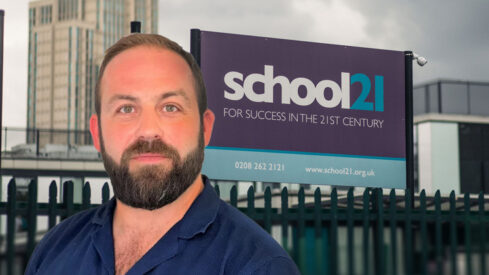



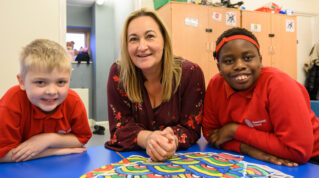
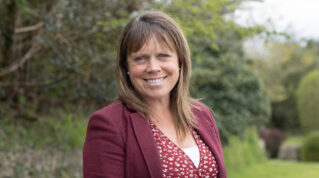
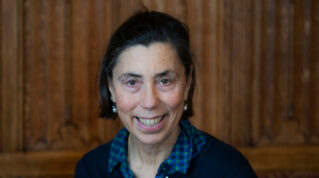
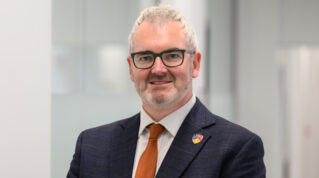
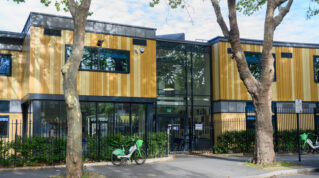


Your thoughts